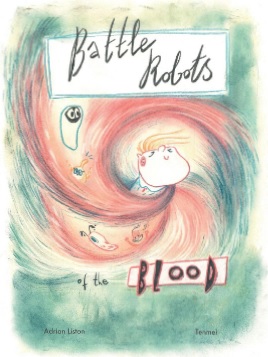Friday
Sep302022
Using "I language": how to communicate with your team
 Friday, September 30, 2022 at 7:57AM
Friday, September 30, 2022 at 7:57AM One of the biggest challenges of having your own team as a PI is learning how to communicate with them about behaviour you are unhappy with. For me, this is often about deadlines. I hate deadlines being missed, and in particular I hate it when a deadline is missed and not communicatd, and basically it is on me to realise, chase up with the person, diagnose the problem and arrange a new deadline. Because it annoys me so much, I go out of my way to make the deadlines achievable - I ask my team member how long they think a task will take, and then I'll often add on a few days or weeks if I think they are under-estimating it (or if the deadline would fall during a period where I wouldn't be able to respond anyway). I'm also highly receptive to a team member telling me, in advance, "I know that we agreed on X as a deadline, but I can already tell I won't make that, can we push the deadline back to Y". With all that being the case, some people repeatedly miss deadlines, and it really grinds my geers. It is one of the easiest ways to sour a professional relationship with me (which, incidently, I explicitly write in my "lab policies" doc that I give to new lab members - it is not a secret!). If it is frustrating me, then I need to bring up the issue with my team member and deal with it. Here is my secret:Use "I language". To explain "I language", it is easiest to start with "you language". "You language" is saying "you missed this deadline". The problem with this is that it immediately puts the person on the defensive: you'll see them coming up with excuses or rationalisations. That isn't a productive mindset for you to change someone's behaviour."I language" reframes the debate. "I feel really disrespected that you missed this deadline and gave the work to me late. I had reserved Friday morning to work on it, but instead I had to skip out on going to the park with my son on Saturday because I got this late. I know that this feels like a one-off to you, but when I manage a team of 15, people only need to do this twice a year to ruin almost every weekend for me. This is really important to me, and now that this has happened several times I feel like you don't respect me or value my time".Advantages of "I language":
- it is actually true. The problem that you are addressing isn't actually their action. The real problem is that this particular action hurts you. We all have different trigger points - messy bench, missed deadlines, swearing, having the radio on - each of these will cause one person to grind their teeth while another person literally won't notice. How do they know this is a sensitive issue for you without you telling them?
- it emphasizes the importance of the issue. For some people, deadlines just aren't that important, so it is hard to make them feel like deadlines are important to them. But they can understand that missing weekend after weekend with your child is important to you, and once you link the two they will get it
- it puts the other person in a zone of empathy rather than in a zone of defence. They don't feel attacked, they feel taken into your confidence, and are gaining an insight into what is important to you
- word spreads faster. People don't like to share that they got told off, but they will share that you are really sensitive to some particular things
- it works. Except for sociopaths, people don't like causing pain to other people. If you find that "you language" works better on someone than "I language", that is a giant red flag that that person has no empathy or ability to work as a team
This probably sounds a lot more like relationship advice than mentoring advice. Which is because it is - I got it from "Why Marriages Succeed or Fail", a scientific analysis of relationships based on recording and analysing real interactions between couples and then correlating these interactions with later divorce rates. While the book is about personal relationships, I believe that the data holds just as true for professional relationships. It is well worth a read for other tips, such as making sure you have a good ratio between positive and negative feedback.
tagged  science careers
science careers
 science careers
science careers 




Reader Comments (3)
Your article was quite helpful; I wish I'd known this earlier.
moto x3m
Your post tells me a lot of useful things. I hope that you will keep putting out more useful content in the future. wordle hint
I love that! They are specifically what I need! I appreciate you sharing these amazing and fulfilling experiences with me and with all of you.